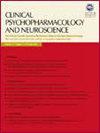Sleep Problems as Predictors in Attention-Deficit Hyperactivity Disorder: Causal Mechanisms, Consequences and Treatment
IF 2.4
4区 医学
Q3 NEUROSCIENCES
引用次数: 34
Abstract
Attention-deficit hyperactivity disorder (ADHD) is notorious for its debilitating consequences and early age of onset. The need for early diagnosis and intervention has frequently been underscored. Previous studies have attempted to clarify the bidirectional relationship between ADHD and sleep problems, proposing a potential role for sleep problems as early predictors of ADHD. Sleep deprivation, sleep-disordered breathing, and circadian rhythm disturbances have been extensively studied, yielding evidence with regard to their induction of ADHD-like symptoms. Genetic-phenotypic differences across individuals regarding the aforementioned sleep problems have been elucidated along with the possible use of these characteristics for early prediction of ADHD. The long-term consequences of sleep problems in individuals with ADHD include obesity, poor academic performance, and disrupted parent-child interactions. Early intervention has been proposed as an approach to preventing these debilitating outcomes of ADHD, with novel treatment approaches ranging from melatonin and light therapy to myofunctional therapy and adjustments of the time point at which school starts.睡眠问题作为注意缺陷多动障碍的预测因素:因果机制、后果和治疗
注意缺陷多动障碍(ADHD)因其衰弱的后果和发病年龄早而臭名昭著。人们经常强调早期诊断和干预的必要性。先前的研究试图澄清ADHD和睡眠问题之间的双向关系,提出睡眠问题作为ADHD的早期预测因素的潜在作用。人们对睡眠剥夺、睡眠呼吸障碍和昼夜节律紊乱进行了广泛的研究,得出了它们诱发adhd样症状的证据。与上述睡眠问题相关的个体遗传-表型差异已经被阐明,同时这些特征也可能用于ADHD的早期预测。睡眠问题对多动症患者的长期影响包括肥胖、学习成绩差、亲子互动中断。早期干预被认为是预防ADHD这些衰弱结果的一种方法,采用新的治疗方法,从褪黑激素和光疗到肌功能治疗和调整上学时间点。
本文章由计算机程序翻译,如有差异,请以英文原文为准。
求助全文
约1分钟内获得全文
求助全文
来源期刊

Clinical Psychopharmacology and Neuroscience
NEUROSCIENCESPHARMACOLOGY & PHARMACY-PHARMACOLOGY & PHARMACY
CiteScore
4.70
自引率
12.50%
发文量
81
期刊介绍:
Clinical Psychopharmacology and Neuroscience (Clin Psychopharmacol Neurosci) launched in 2003, is the official journal of The Korean College of Neuropsychopharmacology (KCNP), and the associate journal for Asian College of Neuropsychopharmacology (AsCNP). This journal aims to publish evidence-based, scientifically written articles related to clinical and preclinical studies in the field of psychopharmacology and neuroscience. This journal intends to foster and encourage communications between psychiatrist, neuroscientist and all related experts in Asia as well as worldwide. It is published four times a year at the last day of February, May, August, and November.
 求助内容:
求助内容: 应助结果提醒方式:
应助结果提醒方式:


